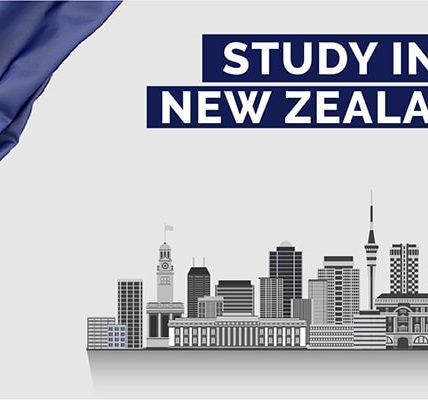Canada Scholarship Visa – Education in Canada – Canada has long been one of the most sought-after destinations for international students seeking high-quality education. Canada Scholarship Visa – Education in Canada
The country is home to world-renowned institutions, a diverse cultural environment, and a reputation for inclusivity and academic excellence.
However, for many international students, pursuing higher education in Canada requires not only gaining admission to a Canadian university but also navigating the complex visa and scholarship application processes. Canada Scholarship Visa – Education in Canada
One of the most significant barriers to studying abroad is the cost of education, including tuition fees, accommodation, and living expenses. Thankfully, Canada offers a range of scholarship opportunities for international students, many of which can ease the financial burden of studying in the country.
Along with scholarships, international students also need a study permit or visa to live and study in Canada. This article will explore the various types of Canadian scholarships available for international students, the process for obtaining a Canadian study visa, and tips on how to maximize your chances of success in securing both scholarships and a study visa.
Types of Scholarships for International Students in Canada
Canada offers numerous scholarships for international students at both the undergraduate and graduate levels. These scholarships are designed to attract bright students from around the world and make studying in Canada more affordable. Scholarships can be broadly categorized into the following types:
- Government-Funded Scholarships
The Canadian government offers several scholarships aimed at international students. These scholarships are typically available for graduate-level studies, although some programs also provide funding for undergraduate students.
- Vanier Canada Graduate Scholarships: One of the most prestigious scholarships in Canada, the Vanier Canada Graduate Scholarships are offered to international students pursuing doctoral (Ph.D.) degrees at Canadian universities. The scholarship provides up to $50,000 per year for three years of doctoral study. This scholarship aims to attract world-class doctoral students to Canada and enhance Canada’s research capacity.
- Canadian Commonwealth Scholarship Program: Offered by the Canadian government in collaboration with the Commonwealth of Nations, this scholarship supports students from Commonwealth countries. It is primarily for students pursuing graduate-level studies and provides full tuition fees, travel expenses, and living allowances for the duration of the program.
- Banting Postdoctoral Fellowships: This program provides funding for international postdoctoral researchers who wish to conduct research in Canada. The Banting Postdoctoral Fellowships offer $70,000 per year for two years and are designed to attract top-tier researchers to Canada’s academic institutions.
- University-Specific Scholarships
Many Canadian universities offer their own scholarships for international students. These scholarships can vary in terms of the level of study (undergraduate or graduate), the amount of funding, and the criteria for eligibility. They often focus on academic excellence, leadership, and community involvement.
- University of Toronto Scholarships: The University of Toronto offers a variety of scholarships for international students, including the International Scholar Awards, which are based on academic merit and cover partial to full tuition fees for undergraduate and graduate students. The university also offers specific scholarships for international students from particular regions.
- University of British Columbia (UBC) Scholarships: UBC provides the International Leader of Tomorrow Award, which is designed to assist international students who demonstrate outstanding academic achievement and leadership abilities. The scholarship covers tuition fees and living costs, making it a highly competitive award for students planning to study at UBC.
- McGill University Scholarships: McGill University in Montreal offers a range of scholarships for international students, including Merit-Based Scholarships for undergraduate students. McGill also offers Graduate Excellence Fellowships for students pursuing graduate studies.
- Private Organization and NGO-Funded Scholarships
Several private organizations, foundations, and non-governmental organizations (NGOs) offer scholarships to international students who wish to study in Canada. These scholarships are often field-specific or are intended to encourage research in particular academic disciplines.
- The Pierre Elliott Trudeau Foundation Scholarships: This prestigious award is aimed at students pursuing doctoral studies in the humanities and social sciences at Canadian universities. The scholarship offers significant financial support, including $40,000 per year for up to three years of study, along with funding for research expenses.
- Lester B. Pearson International Scholarship Program: Offered by the University of Toronto, the Lester B. Pearson Scholarship is designed to recognize international students who demonstrate academic excellence, leadership, and a commitment to making a difference in their communities. The scholarship covers full tuition, books, and living expenses for four years of undergraduate study at the University of Toronto.
- Research-Based Scholarships
Canada is a world leader in research, and many scholarships are available for international students who wish to contribute to cutting-edge research in various fields. These scholarships are often provided through government agencies, universities, or research institutions.
- The Ontario Trillium Scholarship: The Ontario Trillium Scholarship program is designed to attract top international Ph.D. students to Ontario’s universities. It provides a $40,000 per year scholarship for up to four years of study and is awarded to students who have outstanding academic records and research potential.
- Mitacs Globalink Research Award: The Mitacs Globalink program offers international students the opportunity to conduct research at Canadian universities. The scholarship provides funding for research projects in various fields and is open to students from countries with which Canada has academic partnerships.
How to Apply for Scholarships in Canada
Applying for scholarships in Canada typically requires a combination of documentation, including academic transcripts, letters of recommendation, a personal statement, and standardized test scores (such as the IELTS or TOEFL for English proficiency). Below are some essential steps for applying for scholarships:
- Research Available Scholarships: The first step in the application process is to research the available scholarships that align with your academic interests and personal background. Universities often have dedicated scholarship pages on their websites, while scholarship search engines such as ScholarshipsCanada.com and Yconic can provide additional resources.
- Check Eligibility: Each scholarship has its own eligibility criteria, so make sure to carefully review the requirements before applying. Some scholarships may be for specific countries, academic fields, or levels of study.
- Prepare Required Documents: Most scholarship applications will require various documents, including:
- Academic transcripts
- Letters of recommendation from teachers or professors
- Personal statement or essay
- Proof of English proficiency (e.g., TOEFL or IELTS scores)
- Curriculum vitae (CV) or resume
- Complete the Application: After gathering the necessary documents, fill out the scholarship application forms carefully. Ensure that all the details are correct and that you meet the application deadlines.
- Submit the Application: Submit the completed application and supporting documents before the scholarship deadline. Be sure to check the scholarship provider’s website for any specific submission guidelines.
Understanding the Canada Study Visa (Study Permit)
In addition to securing a scholarship, international students need to apply for a study permit (student visa) to study in Canada. A study permit allows students to stay in Canada for the duration of their program and is a crucial requirement for students attending Canadian universities.
To apply for a study permit, students must meet the following basic eligibility criteria:
- Proof of Admission: Students must first receive an acceptance letter from a Designated Learning Institution (DLI) in Canada. The DLI is a list of schools that are authorized by the Canadian government to admit international students.
- Financial Proof: Students must show that they have enough financial resources to cover tuition fees, living expenses, and return travel. This can include proof of scholarships, personal savings, or financial support from a sponsor.
- No Criminal Record: Applicants may need to provide a police certificate to prove they have no criminal record.
- Medical Examination: In some cases, students may need to undergo a medical examination to ensure they are in good health.
- Intention to Leave Canada: International students must prove that they will leave Canada once their study permit expires. This may involve showing ties to their home country, such as a job offer, property ownership, or family connections.
Steps for Applying for a Study Permit
- Apply for Admission: Before applying for a study permit, you must first secure admission to a recognized Canadian university or college. The acceptance letter from the institution will be needed as part of the study permit application.
- Prepare Required Documents: Documents typically required for the study permit application include:
- A valid passport
- The letter of acceptance from a DLI
- Proof of financial support
- Passport-sized photographs
- Medical examination (if necessary)
- Submit the Application: The application for a study permit can be submitted online or at a Visa Application Center (VAC). You will need to create an account on the Immigration, Refugees, and Citizenship Canada (IRCC) website and submit your application along with the required documents.
- Biometrics Appointment: In some cases, students may be asked to provide biometrics (fingerprints and photographs) as part of the application process.
- Wait for Approval: The study permit application process may take several weeks or months, so it is essential to apply well in advance of the intended start date of your program. Once approved, you will receive your study permit, which allows you to enter Canada and study.
Conclusion
Securing a scholarship and a study permit for Canada is a multi-step process that requires careful planning, research, and dedication. Scholarships can significantly reduce the financial burden of studying in Canada, making it more affordable for international students.
Coupled with a study permit, international students can fully immerse themselves in the academic and cultural opportunities that Canada offers.
With the right resources, preparation, and commitment, students can open doors to a world-class education and a promising future in one of the world’s most welcoming countries.




